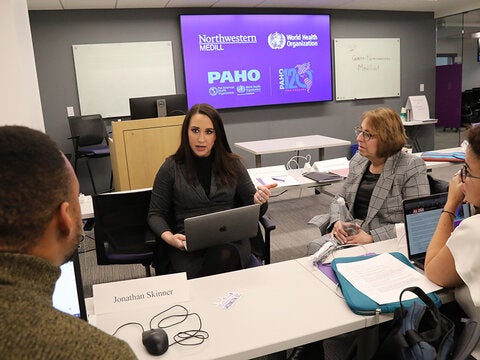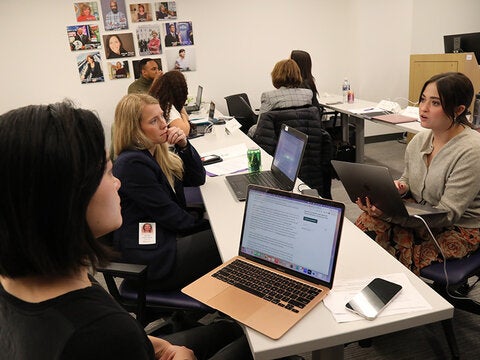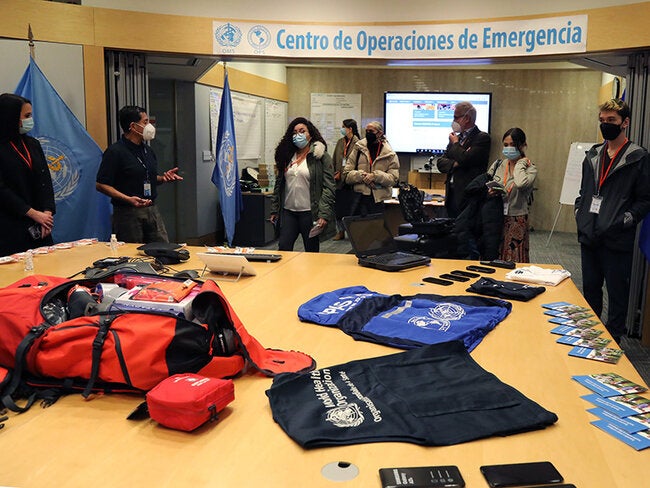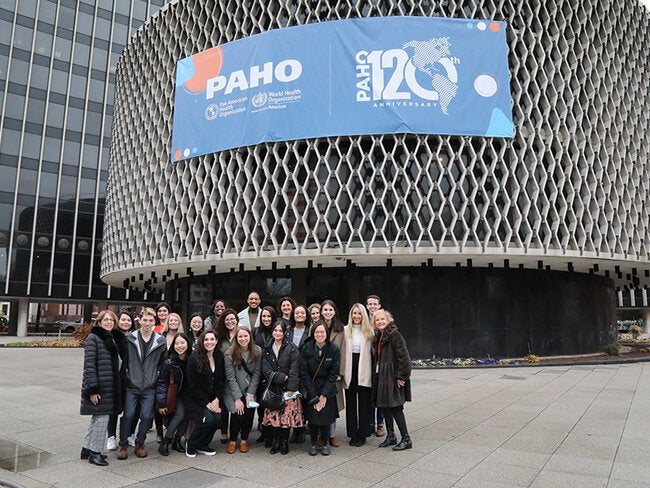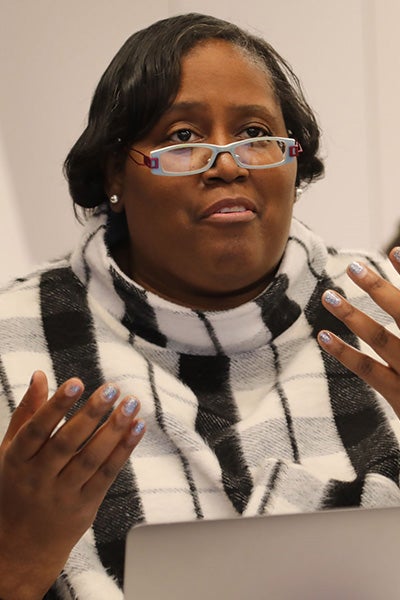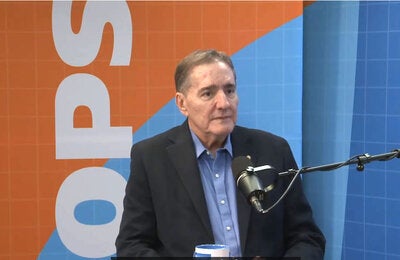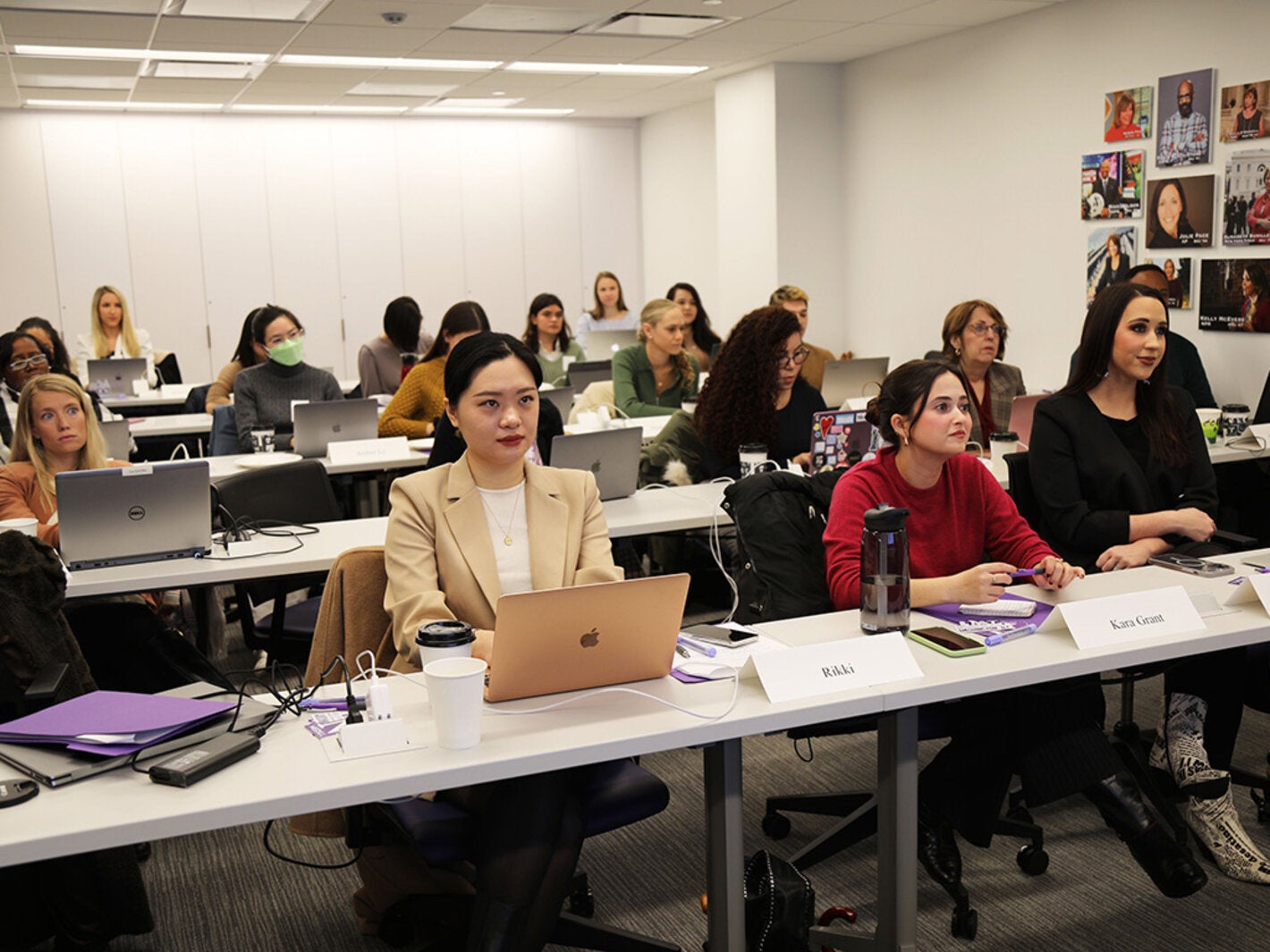
Washington D.C., 20 December 2022 (PAHO/WHO) - Noncommunicable diseases (NCDs), including cancers, diabetes, heart disease and respiratory diseases, account for around 80% of all deaths in the Americas. Yet they remain hugely underreported by the mainstream media, particularly during the last three years, when the COVID-19 pandemic has occupied the vast majority of health-related headlines.
In a bid to tackle this and ensure that journalists have access to the information and tools they need to carry out sensitive, accurate and engaging reporting on NCDs, the Pan American Health Organization (PAHO), in collaboration with the World Health Organization (WHO) and the Medill School of Journalism at Northwestern University, carried out in Washington D.C. a three-day training course for journalists on NCDs.
The training, which was held from 6-8 December and was attended by around 30 journalists from all over the United States of America, enabled participants to learn more about solutions journalism, story development, and reporting without bias or blame from leading veteran journalists and Medill professors. The workshops were complemented with presentations from PAHO/WHO experts and civil society organizations on the importance of reporting on NCDs; diabetes and heart disease; and reporting on obesity, tobacco/vaping, and hypertension.
“NCDs are the biggest killer in the Americas, which is why it is vital that the public is aware of these diseases and the simple measures that can be taken to protect against them – at both the individual and government levels,” said Leo Nederveen, ad interim Chief of the Risk Factors and Nutrition Unit at PAHO. “At PAHO we have a wealth of data, information and expertise that we are more than willing to make available to journalists wishing to cover NCD-related topics.”
During the course, the journalists were invited to spend time at PAHO headquarters, where they received a crash-course on the ENLACE data portal on noncommunicable diseases, mental health and external causes, and visited the organization’s Emergency Operation Center. The participants were also invited to a panel discussion on health reporting at the Associated Press.
At the end of the training, the journalists, who worked for outlets including The Washington Post, PBS NewsHour, Bloomberg News, USA Today, The Chicago Tribune, and Latino News Network, among others, were tasked with reporting for their media outlet on an aspect of NCDs that they had found of particular interest during the training.
Virtual, follow-up sessions will be held in January and February to further deepen the journalists’ knowledge around NCDs including cancer and the impact of healthcare access.

